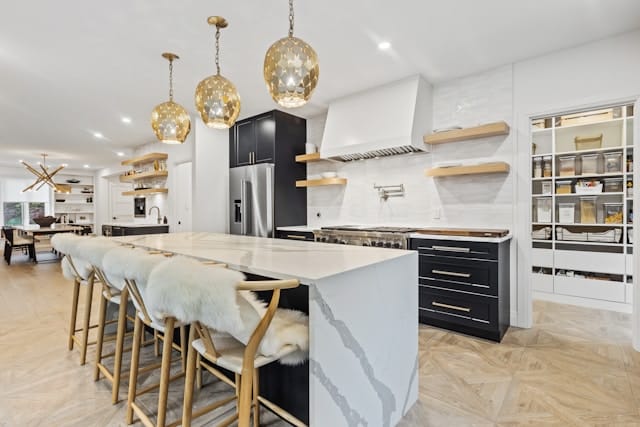We’re discussing the pros and cons of quartz countertops, a popular choice for kitchens and bathrooms. Quartz offers durability, style, and a variety of benefits, making it an excellent choice for many homeowners. However, like any countertop material, it also has its disadvantages. Join us as we explore both sides to help you make an informed decision for your space.
Advantages of Quartz Countertops
Durability and Maintenance
Quartz countertops are engineered stone made from resins and pigments combined with natural stone particles. This composition makes quartz highly durable and resistant to scratching or chipping. Unlike natural stone countertops such as granite or marble, quartz is non-porous, making it stain resistant and easy to clean. There’s no need for sealing, making it an ideal countertop material for busy kitchens and bathrooms.
Aesthetic Versatility
Quartz is available in a myriad of colors and patterns, thanks to the resins and pigments used in its engineering process. This versatility allows homeowners to find the perfect match for their interior design. Whether you’re looking for a subtle addition to your kitchen islands or a standout piece for your bathroom, quartz can offer the aesthetic flexibility you need.
Consistent Quality
As an engineered stone, quartz offers consistency in color and pattern that natural stone can’t match. This can be particularly important for large areas, like kitchen countertops, where uniformity is desired. The manufacturing process ensures each square foot of the material maintains the same hue and texture, ensuring a cohesive look throughout your space.
Disadvantages of Quartz Countertops
Sensitivity to Heat
While quartz is generally heat resistant, excessive heat can damage the surface. Hot pans or cooking utensils can potentially scorch the resins used in quartz countertops, leaving permanent marks. It is always recommended to use trivets or hot pads to protect your countertops from high temperatures.
Potential for Damage
Although quartz is resistant to scratching or chipping, it is not indestructible. Sharp objects can sometimes mar the surface, and edges can be chipped easily if struck with enough force. Repairs can be difficult, often requiring professional help to match the color and pattern of the original material.
Cost Considerations
Quartz is often more expensive than some other countertop options, which can be a disadvantage for homeowners on a budget. The cost per square foot can be higher than that of some natural stones, reflecting its manufacturing process and durability.
Installation and DIY Considerations
While some homeowners may consider a DIY project for installing countertops to save on costs, quartz installation is best left to the professionals. The weight and the precision required to install quartz properly can make it challenging for DIY installations. Professional installation ensures that your countertops are set correctly and last for the intended lifespan without issues.
Quartz countertops offer a blend of beauty, durability, and low maintenance, making them an excellent choice for both kitchens and bathrooms. At Lonestar Floors in Katy, TX, we believe in providing our customers with all the information they need to choose the right countertop material for their home. We’ve discussed the pros and cons of quartz countertops, highlighting both the advantages and disadvantages to help you make an informed decision.
If you’re considering quartz or any other type of countertop, don’t hesitate to contact us. Our experts are here to guide you through every step, from selection to installation. Call Lonestar Floors today to find out more about how quartz countertops can enhance your home!

